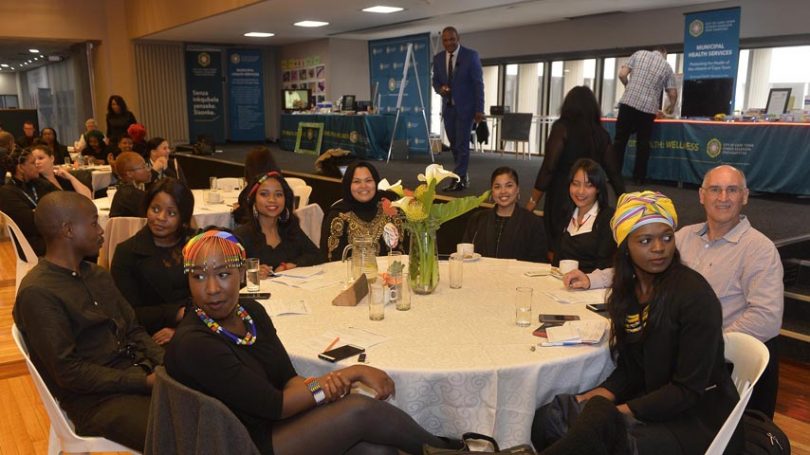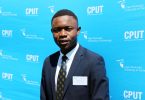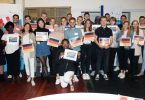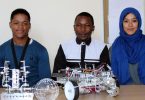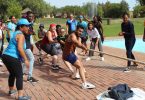Two groups of Environmental Health third year students were recently invited to present projects at the City of Cape Town’s World Health Environmental Day (WEHD) celebrations.
The students presented on their Work Integrated Learning (WIL) projects which they implemented while working for the City Health department. The projects had to focus on the 2018 WEHD theme “Food Safety and Sustainability”.
First the students presented their projects to academic staff and their mentors during their WIL excursion and the group who articulated and presented the best project was invited by the City of Cape Town to present their projects at the annual WEHD celebrations.
The group who went to the Lakeside office were placed first while the group who went to the Kuilsriver office came second. The group who came third, who worked in the Parow office, went along to the presentations at the Civic Centre to watch their fellow students present their posters.
Environmental Health lecturer Michael Agenbag said this year the City of Cape Town allowed two WIL groups to present their projects as opposed to previous years when only the winning team were invited to the WEHD celebrations.
Their topics were “Food premise identified using alternative water source while implementing the project life cycle” (Lakeside) and “Hygienic storage and usage of municipal water” (Kuilsriver).
Agenbag explained their food lecturer had expected them to select food premises that made use of alternative water sources because of the drought in the Western Cape. “As part of their project she expected them to develop a teaching poster that they had to use during their training session with the food handlers.”
He said what made the two groups stand out was the way they interpreted the assignment and integrated project management phases to ensure the successful implementation of their projects. “Also the crossfields integration of subject matter between food and management practice.”
Third year student Nonkosi Somwahla, of the Parow group, said one of the biggest lessons they learned was proper time management skills. She appreciated not only the practical experience but also being able to apply all the theory they had learned in class.
“For me presentations is one of the stressful things that I still need to master but what I’ve learned is that your audience gets an opportunity to learn through what you are presenting. Through their feedback you also learn a thing or two. I think if presentations were done on a regular basis to academics that would make students like me more fond of doing it rather than just to get a mark next to your name,” said Nonkosi.
Written by Theresa Smith

